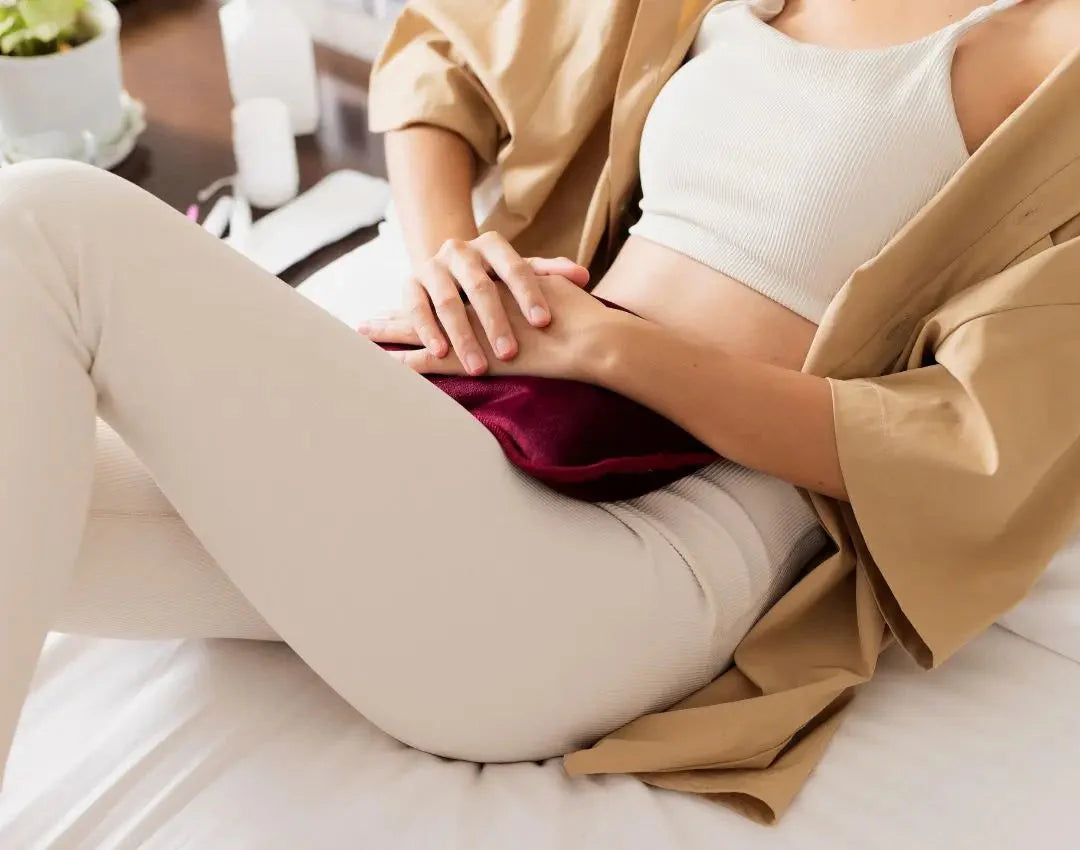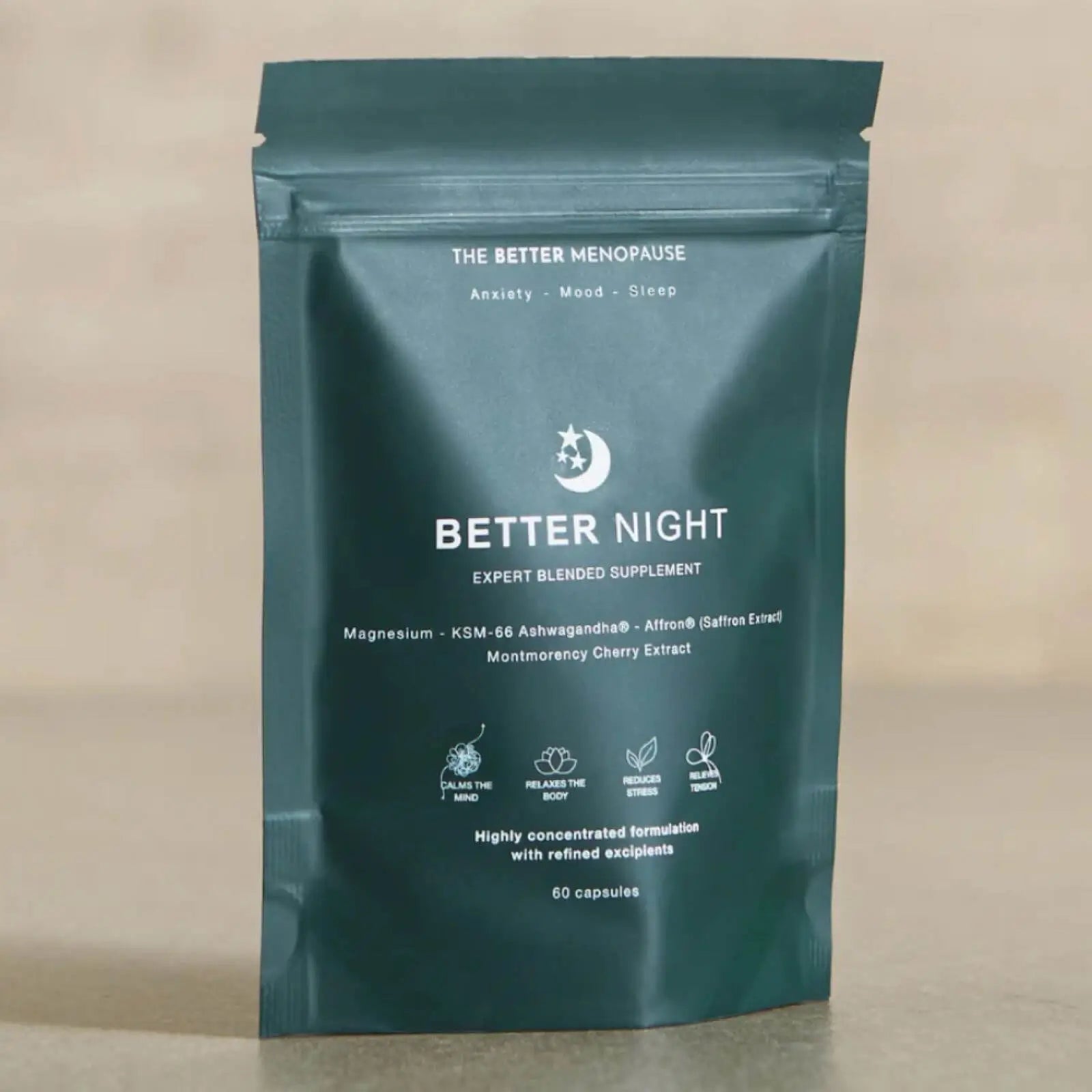
What Happens to Your Period During Perimenopause?
Thought you knew exactly where you were with your cycle, until all of a sudden everything changed? Erratic periods, heavy flow, longer cycles, shorter cycles… The possibilities are endless when it comes to perimenopause! So what exactly happens to your period during this time, and what can you do to manage the uncertainty of it all? Award winning GenM (and menopause friendly!) period brand, WUKA, explains more.
What is Perimenopause?
Most of us learned about the first period at school, but nobody really about the last period, let alone what happens to your cycle in the lead up to that very last bleed. The transition from regular cycles to menopause is called Perimenopause, and thankfully the conversation surrounding it is starting to open up, and we’re starting to understand more about what happens during this time.
For some, perimenopause can last up to 10 years, and the age at which it starts can vary form person to person too.
What Happens During Perimenopause?
During perimenopause the ovaries gradually begin to stop working. It’s a natural process that will happen to us all eventually, and it brings with it quite a range of symptoms, most common of which include:
- Hot flushes
- Night sweats
- Heavy periods
- Mood swings
There are actually a range of other physical and emotional symptoms that can occur too- and changes to your period are, for many, a first sign that perimenopause has begun.
Changes to Your Period
Fluctuating hormones are at play here. So what can we expect?
Shorter Cycles
The slowing down of the ovaries can cause the follicular phase to become shorter, which in turn leads to early ovulation- and therefore a shorter cycle overall.
Longer Cycles
Just like above, longer cycles are also caused by fluctuating hormone levels, and your actual period could last longer than your usual 2-5 days too.
Changes to your flow
Lots of women going through perimenopause experience changes to their flow, again thanks to fluctuation of hormones. For many, the drop in progesterone can trigger heavy bleeding, and this is very common during the early stages of perimenopause.
But just to make it interesting, some cycles may be lighter than usual, and others may be heavier (whilst also being shorter, then longer, then shorter again… ) - so just what is happening here?
Hormones, hormones, hormones. As the ovaries slow down, they might not produce an egg for ovulation during some cycles. This is called an anovulatory cycle, and results in a lighter blood flow. When ovulation does occur, your period will be heavier- and if your cycle has been longer than normal, your flow could be heavier than normal too.
Towards the end of perimenopause, fluctuations of hormones become a little more intense, and variations in your cycle can occur more and more. In other words, you might not know what’s happening or when!
Managing Your Period During Perimenopause
It’s not easy trying to predict how your cycle is going to behave from one month to the next, and if you’ve always been regular it can be quite frustrating too. So how do we manage our period with all of this uncertainty?
Make the switch to period pants. Here are just three reasons why it’s a good idea:
-
Leak-free confidence:
When your flow is super heavy, the last thing you want is to spend half the day in the loo changing leaking pads or tampons. WUKA’s Super Heavy Flow period pants hold up to 60ml period blood, meaning you can wear them for longer without fear of leaks. Yes, even at nighttime. Thanks to an extra long gusset, these pants are guaranteed to hold it all in, all while keeping you feeling fresh and dry too.
-
Just-in-case-reassurance:
Erratic cycles can be hard to navigate, and nobody has the spare cash to waste on plastic-filled disposables that might or might not be needed. Luckily, period pants can be worn just like normal underwear, ready to absorb your flow if it decides to turn up. And if it doesn’t, just wash them with your normal laundry load and they’re ready to go for next time.
-
Stay cool, stay comfy:
Cycle changes aren’t the only symptom of perimenopause- temperature fluctuations, bloating, weight gain, cramps and vaginal dryness are all symptoms that could pop up as part of this journey towards menopause. And that’s on top of an erratic period! Don’t worry, WUKA period pants have got it covered. Their Stretch™ period pants feature CoolMax™ technology to keep you dry and fresh, and Stretch™ technology for a second-skin fit. This means that even if your flow is heavy, the blood will stay locked away from your body and you’ll stay comfy and odour-free. It also means that you’re guaranteed a perfect fit (each pair stretches up to 4 sizes) even if you’re bloated or you've gained some weight. No digging in and no chafing whatsoever- plus the Cotton Stretch™ period pants offer protection against irritation too.

How to use period pants
It’s never too late to make the switch to period pants, and they’re so easy to use. Wear like normal underwear, bleed into them, wash them. That’s it!
After use, rinse in cold water as soon as you can, then wash as normal on a low heat setting (no hotter than 40 degrees), then either dry outdoors or inside on an airer. No fabric conditioner or tumble dryers.
You’ll need around 5 pairs of pants per cycle- that’s one pair to wear, one pair for spare and one pair for nighttime, with two in the wash/ for extra heavy flow days. They’ll last up to two years if cared for properly, and can be used to absorb all the way from light flow (including spotting and/ or discharge) to super heavy flow. We also recommend WUKA DryTech™ reusable incontinence pants
for lights leaks and dribbles (yet another delight of perimenopause- 1 in 3 women experience bladder weakness over the age of 35!). These pants also use their innovative Stretch™ technology so adjust up to 4 sizes in one pair.
If you would like to try WUKA pants for your then head on over by clicking here and use code BETTERM10 for 10% off your first purchase.



